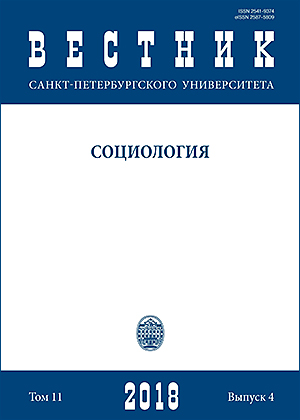Generalized trust: Сonceptualization and measurement
DOI:
https://doi.org/10.21638/spbu12.2018.406Abstract
The work is aimed at identifying the relationship between the theoretical and empirical interpretations of generalized, general, interpersonal, encapsulated and reciprocal types of trust. The research presents the empirical data of the analysis of the concept of generalized trust based on the materials of the world value survey and the author’s research in Tyumen region. The empirical data was connected with clarification of various interpretations of trust. The differences in the approaches come out from the contradictions that impede empirically unambiguous measurement, the accumulation of scientific knowledge, the distinction from other similar concepts in the social sciences. The approach proposed by the authors can serve as a starting point for the future research, helps to distinguish trust and reliability from other closely related concepts and systematize different concepts of trust. The possibilities of the analysis of “sufficient” trust and trust based on “common sense” are demonstrated. Generalized trust, calculated in the willingness to trust strangers and to rely on the help of friends, is a much more sustainable measure than just the answers to the “standard question of trust”. The refined measurement of the generalized trust allows to increase the level of social security and can be included in the social capital measures, but still can not be reflected in the self-assessments of the status. The stability of feedbacks between generalized trust and social status at the micro level shapes the character of society, making it generally more reliable. It is possible to identify the strength of the “reverse interaction” on the basis of the test of the relation between generalized trust and an amendment to the norms of reciprocity with age, material and social status.
Keywords:
socio-cultural, generalized, interpersonal, encapsulated, reciprocal trust, structural analysis
Downloads
References
References
Downloads
Published
How to Cite
Issue
Section
License
Articles of "Vestnik of Saint Petersburg University. Sociology" are open access distributed under the terms of the License Agreement with Saint Petersburg State University, which permits to the authors unrestricted distribution and self-archiving free of charge.




